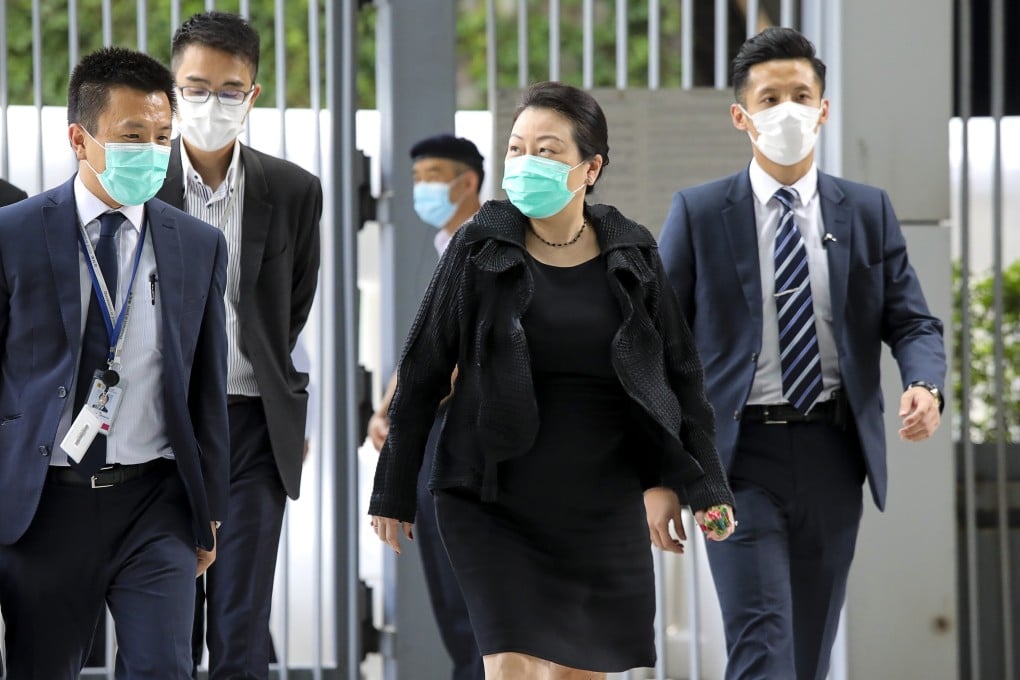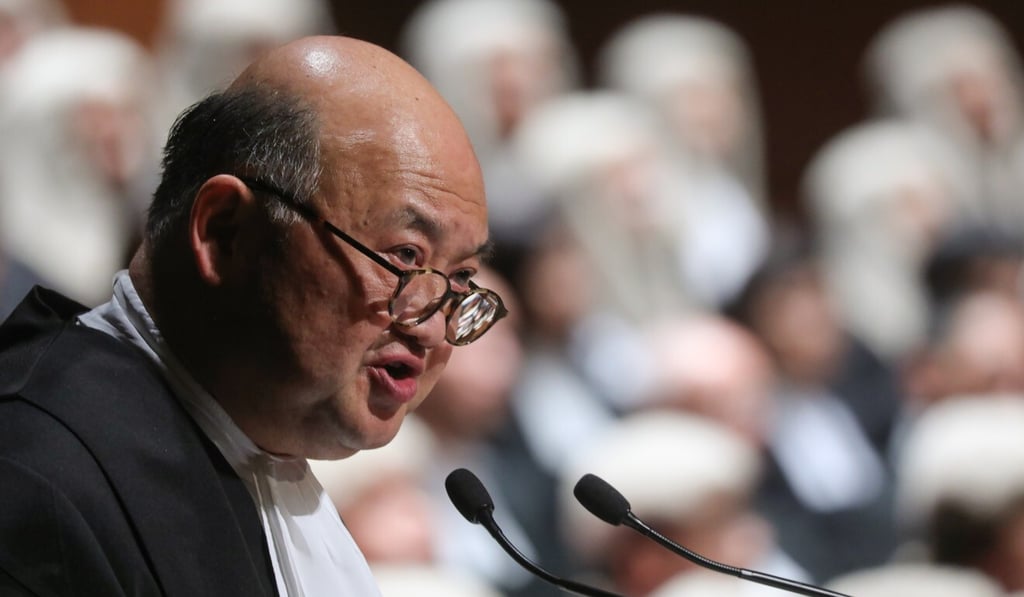Hong Kong national security law: citizenship not prerequisite for judges’ appointment to cases, minister says in clearest indication yet on issue
- Teresa Cheng also warns lawmakers that privileges and immunity enjoyed by them in legislature will not cover breach of new law
- She declines to comment on reports of Indian-born judge being removed from recommended list because of non-Chinese ethnicity

Hong Kong’s justice minister has offered the clearest indication yet on the role of foreign judges in court cases involving national security, saying that citizenship would not affect their appointment to hearings.
But Teresa Cheng Yeuk-wah declined on Tuesday to say if a foreign judge had been appointed, nor would she address media reports that Indian-born principal magistrate Bina Chainrai was removed from a list of recommended judges because she was not ethnic Chinese.
Cheng, with Secretary for Security John Lee Ka-chiu, was briefing lawmakers on the national security law in a special Legislative Council meeting. She also noted that legislators were not shielded by privileges and immunities they enjoyed in their role, if they breached the new law.
Article 44 has stated clearly … there is no requirement concerning the nationality of a judge. The chief executive will appoint judges in accordance with Article 44
Cheng’s comments came amid a heated debate on the power granted to the city’s leader under Article 44 of the national security legislation to appoint a pool of judges to handle related cases.
Chief Executive Carrie Lam Cheng Yuet-ngor has picked six judges, the government said last week, without revealing the names in question.
While the opposition said such practice would harm judicial independence, there were voices from the pro-establishment camp arguing that foreign judges should be excluded to avoid possible conflict of interest.

At Tuesday’s meeting, opposition lawmaker Dennis Kwok said: “Many of the so-called foreign judges are actually Hong Kong people. They have lived and worked in Hong Kong for a long time and it is an insult to them if you regard them as foreigners.”